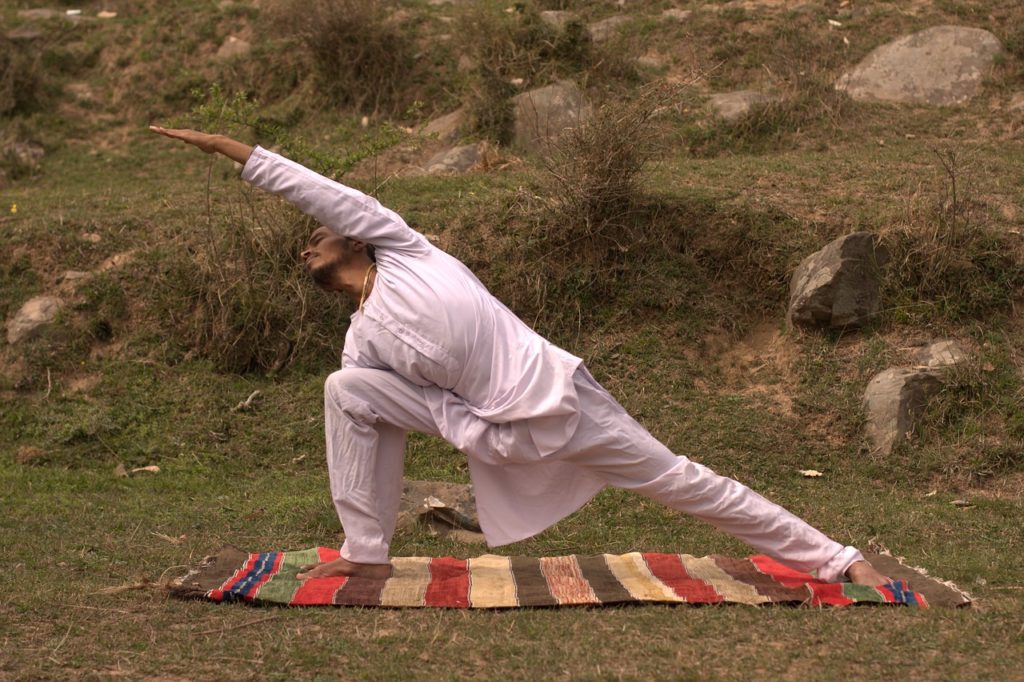You probably love the way exercise makes your body feel without thinking about how exercise improves mental health.
Just knowing that you’re strengthening, stretching, and toning your muscles while maintaining health can be enough to get you to the gym or yoga/pilates studio. But you’re also working out your brain, in essence.
Yep. That’s part of why you feel so good after you exercise. Along with helping to prevent and improve certain health conditions, exercise provides psychological benefits as well.
Ways Exercise Improves Mental Health
When you’re working out your body, you’re exercising your brain as well. Activity not only releases feel-good endorphins, but it also subdues the “fight or flight” sympathetic nervous system.
Recent studies also show that exercise creates new brain cells. This process, known as neurogenesis, strengthens the hippocampus and can help to prevent memory loss.
And all of those brain-boosting benefits extend out to other aspects of your life too, including:
1. Lowers Stress
We’ve all been there. A tough day at work or pressures at home can leave you feeling tense and overwrought. Your muscles in your neck, face, and back tighten and you may even end up with a headache.

Untreated, this stress can eventually lead to insomnia, digestive issues, muscle cramps, and other physical symptoms that lead you to believe something else is seriously wrong. Pretty soon, you’re stuck in a cycle of worry and fear and you’re too overwhelmed to do anything. You’ve reached burnout.
But exercise relaxes the muscles and relieves tension throughout your body. Endorphins flood the brain and your mind finds ease. Add in the benefits of a mindful practice such as yoga and you’ll start to feel the stress melt away with each deep and mindful breath.
2. Improves Sleep
If you regularly have trouble sleeping, knowing the importance of getting enough sleep can make it even more difficult. (Performance anxiety.)
Exercise can help with this. Of course, you don’t want to jump on the treadmill right before bed. But partaking in regular physical activity each day will help to regulate your natural sleep and wake cycles. Knowing when your energy is at its highest increases productivity.
So take advantage of that lunch hour to get a brisk walk in each day. Or plan some sort of fitness class after work each day before you head home. It’s even better if you work for a company that provides this service right there on the premises, so you may want to consult your HR department to see if they could offer this.
3. Lessens Anxiety
Researchers continue to explore exercise as a tool for treating and possibly preventing anxiety.
People with heightened anxiety react fearfully when they experience the sweating and racing heart that often occur when they feel threatened. Ironically, these can be some of the same sensations that come from exercise.
As such, researchers began to think that exercise could be a tool for treating and even preventing anxiety. They reasoned that if those with heightened anxiety could learn to experience these symptoms without fear, it would lessen their anxiety.
Upon testing their theory on 60 volunteers with heightened sensitivity, they found that those who took part in a two-week exercise program experienced marked improvements in anxiety sensitivity. Participants were able to associate their symptoms with safety instead of danger.
4. Eases Depression
Researchers have also looked at the impact of exercise on depression. Studies show that for those with mild to moderate depression, exercise can be as effective as antidepressant medication. Furthermore, maintaining a regular exercise regimen can prevent relapse.
How could this be?
Exercise promotes an array of positive changes in the brain. The neural growth, reduced inflammation, and new activity patterns that come with exercise promote feelings of calm and well-being.
Yet, just the sheer distraction of exercise is also powerful. Taking some time to step away from the craziness of life and move your body allows you quiet time to break out of the cycle of negative thinking that fuels depression.
5. Boosts Confidence and Self-Esteem
Sure, increasing muscle tone, building endurance, and losing weight are all confidence and self-esteem boosters. When you hit that point that you notice you’re fitting into clothes better or are able to get to the top of the hill more easily, it’s encouraging.

But there’s also an important social aspect that comes with exercise and physical activity. For those who feel anxious, depressed, and just plain stressed, the inclination is to isolate with a bag of Cheetos and a pint of Butter Pecan ice cream. This only further exacerbates the condition.
Meanwhile, a regular exercise routine puts you in touch with other people and enables you to forge new bonds. Even just a simple smile or a friendly hello can go a long way toward feeling better.
6. Relieves PTSD Symptoms
As research continues, there is mounting evidence that incorporating a one-pointed focus on the body as it moves can help the nervous system get unstuck. This could help to overpower the immobilization stress response that’s so common for those with PTSD or who are healing from trauma.
Exercises with cross-movement with both the arms and legs such as dancing, walking, yoga, and swimming are premium choices.
How Much Exercise Is Enough?
In spite of the many benefits it offers, there is such as thing as too much when it comes to exercise. The magical amount – in terms of mental health outcomes – seems to be 45-60 minutes just three to five times per week.
One of the most important lessons yoga teaches is recognizing and honoring your limits. So as you adapt to your own exercise routine, you’ll find the right amount for you.
Bring Yoga and Mindfulness Movement to Your Work Place
Want evidence for yourself that exercise improves mental health?
Contact us today to find out how we can bring yoga and mindfulness movement practices right to your company, school, or organization.
We will work with around your schedule and physical space challenges to foster a more productive work space.



